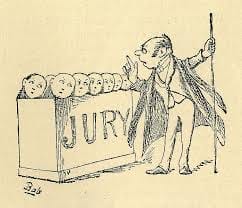by Jason Tarnow | Sep 23, 2019 | Crime, Criminal Attorney, Legal Aid, Legal Rights, Police, Wheels Of Justice
Bill C-75 received Royal Assent on June 21, 2019. The Act amends the Criminal Code, the Youth Criminal Justice Act (“YCJA”), the Victim Surcharge Bill (C-28), the Exploitation and Trafficking in Persons Bill (Bill C-38), and the Unconstitutional provisions Bill (Bill C-39).

Lacking a comprehensive amendment since 1972, the bail provisions of the Criminal Code have been revised to address concerns that have been mounting for several decades. The Act seeks to simplify the judicial interim release process by expanding the conditions on which the police can release an Accused person, thereby making an appearance before a Justice unnecessary. The Act will also seek to reduce judicial delay by ensuring that release conditions are not redundant, unrealistic or overly complex, and that sureties are not overburdened.
If successful, the amendments relating to bail will result in fewer Administration of Justice Offences (“AOJO”) being brought before the Canadian courts. In any event, the Act has laid new framework by which these offences will be dealt with. Offences of this nature are offences that are “committed against the integrity of the justice system”, including but not limited to: failing to comply with bail conditions (no contact, no-go, abstinence alcohol/drugs to name a few), failure to appear in court, and breach of probation. Amendments to the Act provide that these offences will be directed to a judicial referral hearing when appropriate, as opposed to immediately laying a breach charge. At a judicial referring hearing, rather than focus on the guilt or innocence of the accused, the Judge will review the conditions imposed, and will decide how to proceed. Judicial referral hearings will not appear on a person’s criminal record – however, if a person does not appear for their hearing, the investigating police officer may use their discretion to either drop or proceed with the charge. Since Administration of Justice Offences account for about 4 out of every 10 incidents reported by police, removing these matters from the traditional court process will likely have a substantial impact on managing judicial delay.
The Act amends several portions of the YCJA. Firstly, it limits the conditions that can be placed on a young person upon their release from custody, in hopes of avoiding breaches that occur only due to unnecessarily rigid conditions. The intended result will be lower frequencies of Administration of Justice Offences. Additionally, prosecutors will no longer be obligated to consider an adult sentence for youth charged with serious violent offences, and are no longer obligated to bring that decision to the attention of the Court. The Crown will also not be obligated to consider an adult sentence for a youth convicted of a serious, violent offence.
In the interests of addressing delay, the Act has also removed certain elements of the judicial process, many of which could likely hinder an Accused person’s ability to make full answer and defence to the charges against them. Firstly, the Act restricts the availability of Preliminary Inquiries to offences that carry a maximum punishment of 14 years or more in prison (previously, any indictable offence could attract a Preliminary Hearing). Preliminary Hearings are an excellent opportunity for the Crown, Defence and Judge to assess the strength of the prosecution’s case. It assists with judicial case management, providing insight into the length of time required for witnesses to give their evidence, issues requiring a Voir Dire, and the number of days required for trial. In certain instances, it may also provide an opportunity for the defence to consider a resolution proposal, in circumstances where the evidence presented guides such a decision. Additionally, the Act permits Judges to limit the issues explored during a Prelim, and which witnesses may be called. It goes without saying that indictable matters aside from first degree murder and aggravated sexual assault are deserving of a Preliminary Hearing.
The Act also modifies the procedure for jury selection. Peremptory challenges, which allowed counsel to reject a potential juror without requiring a reason, have been abolished. There were serious concerns surrounding the misuse of peremptory challenges to ensure the jury was of a particular composition – one that would be adverse to the interests of the Accused.
The objective of the Act, broadly, is to reduce judicial delay by targeting and eliminating systemic flaws that impede the wheels of justice from turning as they should – but constitutional challenges are still to be expected.
If you’ve been charged with a criminal offence, it is crucial that you contact an experienced criminal lawyer without delay. We are conveniently located in Richmond, B.C., only a few steps away from Brighouse Station on the Canada Line, which brings you from various locations in Metro Vancouver in 20 minutes. We service all areas of the lower mainland (including but not limited to Surrey, New Westminster, Port Coquitlam, North Vancouver, and Abbotsford) the interior of B.C. (including but not limited to Cranbrook, Kelowna, Kamloops, and Salmon Arm), Northern B.C. (including but not limited to Prince George, Prince Rupert, and Quesnel) and in the Yukon Territory where we offer services in Whitehorse, Dawson City, Faro, Mayo, and Old Crow. Contact our office today to speak to a criminal defence lawyer without delay.
by Jason Tarnow | Oct 16, 2018 | Crime, Media, Police, Politics, Social Media
On October 17, 2018, which is just 1 short day away, cannabis becomes legal across all of Canada.

Cannabis legalization marks a huge shift in public policy, law, and will propel an industry that has existed in the shadows, into the limelight. While both federal and provincial governments have been candidly saying that legalization will not be perfect right away and will be a work in progress, most Canadians are viewing legalization as a step in the right direction as so many lives have been negatively affected by cannabis prohibition.
So, what will happen on October 17? The naysayers want you to believe that there will be a proliferation of crime in the streets. Stoned zombies walking around town. A dramatic rise in impaired drivers. However those that are educated on the subject know that the sky won’t fall and society will continue to function just as it did today, on October 16. What will change is that the millions of cannabis consumers in Canada won’t have to worry about being arrested (if they stay within the parameters of the new cannabis laws) and communities that allow for retail sales will be able to collect millions in tax dollars that can be pumped right back into public programs and infrastructure.
For a variety of reasons, there remains a considerable stigma associated to cannabis consumption. However as time goes on and people realize the benefits that legalization will bring, I predict that the stigma erodes and that society will regard cannabis favorably.
by Jason Tarnow | Apr 10, 2018 | Crime, Criminal Attorney, Legal Rights, Police, Wheels Of Justice
 On March 29, 2018, Bill C-75 had its first reading in the House of Commons, and upon publication, was quick to receive scrutiny from lawyers across the country.
On March 29, 2018, Bill C-75 had its first reading in the House of Commons, and upon publication, was quick to receive scrutiny from lawyers across the country.
The Bill seeks to amend provisions of several key pieces of legislation, including the Criminal Code and the Youth Criminal Justice Act. However, in doing so, many rights currently afforded to an Accused will become a thing of the past.
The first major concern that stands out is the proposal to abolish the use of peremptory challenges in the jury selection process. When jurors are being selected, an Accused person and his Defence counsel are afforded 12 of these challenges, permitting them to deny a juror without explanation. Crown Counsel also has 12 challenges for their own use. The purpose of peremptory challenges is to provide balance in the adversarial trial process – however, the motivation behind their use differs depending on who you ask. The Bill doesn’t elaborate on how jury selection will be managed without peremptory challenges.
Equally alarming is the proposal to deny Preliminary Hearings for offences that don’t carry a maximum term of life imprisonment upon conviction. It is also being suggested that Justices be given power to limit issues examined and witnesses called during a Prelim. The Preliminary Hearing’s purpose is to determine whether the Crown has enough evidence to commit an Accused person to stand Trial, a valuable tool for the Defence in any given case (even if the offence doesn’t carry a potential life sentence). However, it isn’t beneficial only to the Accused. The evidence heard at a Preliminary Hearing is transcribed, to be recalled upon by parties at Trial. The issues explored at the Prelim can assist in narrowing what issues will be raised at trial, which in return reduces the likelihood of wasted court time on irrelevant issues (especially important in consideration of the impact of delay!). With the ability to seek a Direct Indictment from the Attorney General, the proposal to limit Prelims is wholly unnecessary.
Next up, and not surprisingly, we see this Bill seek to increase punitive measures for Accused persons facing allegations of abuse against an intimate partner. These consequences begin prior to any finding of guilt – in fact, they begin at the onset of proceedings, when an Accused person seeks release on bail. Bill C-75 suggests more “onerous interim release requirements” for individuals facing allegations relating to violence against an intimate partner. This essentially means that the terms of release will be increasingly stringent. On that note, the Bill also proposes to increase the maximum term of imprisonment for repeat intimate abuse offenders, and to have violence against a partner considered an aggravating factor at
sentencing.

Perhaps most disturbing is the revision relating to police powers and written evidence in the form of an Affidavit. Currently, a police officer is required to attend a trial in person to give oral evidence regarding their involvement in the case. They are subjected to cross-examination on that involvement, at which time they must truthfully answer questions posed by the Defence. This is a crucial opportunity for the Defence to raise reasonable doubt (when considering that police officers often offer the most compelling and credible evidence) which is the only reason for taking a matter to trial. Of course, the Defence will still be allowed to apply to cross-examine a police officer on their written evidence – but that application requires additional court time, and one struggles to believe that such an application would be denied in any event. So this proposed amendment will likely result in additional delay and squandered court time.
Many of these amendments strike at the heart of the adversarial process, and an Accused’s person’s right to make full answer and Defence to the charges against them. Numerous changes are procedural, justified by the assertion that too many cases are being thrown out over judicial delay. Systemic flaws, a lack of inquiry and input by judicial staff, and failure to accept and validate the concerns of concerned legal professionals in the private sector are a few of the factors that have resulted in impractical proposals pushed forward in Bill C-75.
by Jason Tarnow | Jul 24, 2017 | Crime, Legal Rights, Police, Social Media, Wheels Of Justice


The Vancouver Police Department announced that it will be using a new form of intelligence to stop crime before it happens.
No, it isn’t the formation of the Psychic Task Force. It isn’t any sort of “Big Brother” surveillance method (I think) – rather, the VPD has declared it will be the first law enforcement agency in Canada to utilize a “crime prediction model” that will tip officers off to property-crime offences before they happen.
Unsurprisingly, the public has been given very little information about what this new tool is able to do. So far, all we have been told is that it is a computerized program that was apparently very successful in its 6 month pilot project.
The program identifies both residential and commercial areas that display a high-likelihood for property crime. Surveillance areas are set up within a 100-500 meter perimeter, and officers are then dispatched to those areas for visible public presence.
The presence of police, of course, acts as a deterrent for thieves and vandals.
Interestingly enough, this comes as a further development to the 2015 crime mapping tool developed by the VPD. This interactive map is available to the public, for use by anyone interested in learning more about which areas in Vancouver are deemed higher risk. While many people attribute
While this may seem like a weak method of combatting serious and ongoing theft and vandalism, preventative measures are only deemed necessary once an issue has spiralled out of control.
Charges that police hope to see a reduction in as a result of this new preventative measure:
- Break and Enter
- Break and Enter to commit an Indictable offence
- Theft under $5,000
- Theft over $5,000
- Mischief
- Possession of stolen property
It isn’t unusual to see “petty” crimes, such as minor theft, escalate into more serious situations that can include violent offences as well – for example, a man breaks into a vehicle looking for valuables, but the owner of the vehicle happens to come down to his car as the crime is in progress. An altercation ensues, police attend, and the charges include break & enter, theft, AND assault. By preventing the theft, the entire situation could have been avoided.
Ideally, this tool will aid police in preventing some crimes from happening, but realistically, crimes will still occur in the areas that aren’t padded by police presence.
We are conveniently located in Richmond, B.C. only a few steps away from Brighouse Station on the Canada Line, which brings you from various locations in Metro Vancouver in 20 minutes. We service all areas of the lower mainland (including but not limited to Surrey, New Westminster, Port Coquitlam, North Vancouver, and Abbotsford) the interior of B.C. (including but not limited to Cranbrook, Kelowna, Kamloops, and Salmon Arm), Northern B.C. (including but not limited to Prince George, Prince Rupert, and Quesnel) and in the Yukon Territory where we offer services in Whitehorse, Dawson City, and Old Crow. Contact our office today for your initial consultation.
by Jason Tarnow | May 4, 2017 | Crime, Media, Wheels Of Justice
It has been over one year since Dr. Perry Kendall to declare a Public Health Emergency in British Columbia.
That emergency announcement has not been retracted, but now, the Federal government is beginning to take additional steps to combat the ongoing crisis.
On May 2, 2017, Bill C-224, to be known as the Good Samaritans Drug Overdose Act, was unanimously passed in the House of Commons by MPs from all parties.
The bill aims to ensure that individuals who seek emergency help for someone suffering from an overdose can do so without fear of being prosecuted for drug possession offences. Additionally, it will protect those same individuals from facing breach charges related to drug possession.
The passing of Bill C-224 is fundamental in encouraging anyone witnessing an overdose to seek emergency medical treatment for that individual.
It is a very bold (and extremely necessary) stride in fighting back against one of the most lethal killers on the streets of British Columbia, which has claimed over 1,000 lives in the past 5 years.
Perhaps 1,000 doesn’t seem like a huge number – but do remember to that in the entire year of 2012, there were only 12 deaths attributed to Fentanyl overdoses.
In 2013, that number jumped to 50.
Fast forward to 2016, and that number climbs to 575 (roughly 47 people per month).
There is no question about the existence of a relationship between criminality and drug abuse. The two are not mutually exclusive, but are by no means estranged either. There is a direct link between them – profiting from crime (theft, fraud, etc) is the often only way to fuel addiction.
Our Provincial Government, however, is not obtuse to the unique circumstances that plague Vancouver’s drug scene. Vancouver’s Downtown Community Court is the first of its kind in Canada and serves roughly 1,500 people per year. It is a purpose-designed courthouse, and strives to bring resources for justice, health, and social services to the Vancouver community. Matters will be referred to the Downtown Community Court when the offender requires assistance to deal with underlying issues such as homelessness, substance abuse, and mental health problems.
With enactment of the Good Samaritans Drug Overdose Act, citizens do not have to worry about being penalized for seeking emergency assistance for someone who is overdosing. And rightfully so. Our government’s first priority should be harm reduction for every individual battling addiction, with no agenda to balance that objective with the war on drugs.
Bill C-224 does not however provide any immunity from prosecution for drug trafficking or other drug related offences.
There could not be a worse time to find yourself charged with an offence related to Fentanyl. Being charged with possession in circumstances unrelated to those discussed above can result in a lengthy term of incarceration, lifetime travel restrictions, and a host of other consequences. Contact a Vancouver Criminal Lawyer at Tarnow Criminal Law today for a free consultation.



 On March 29, 2018,
On March 29, 2018, 

